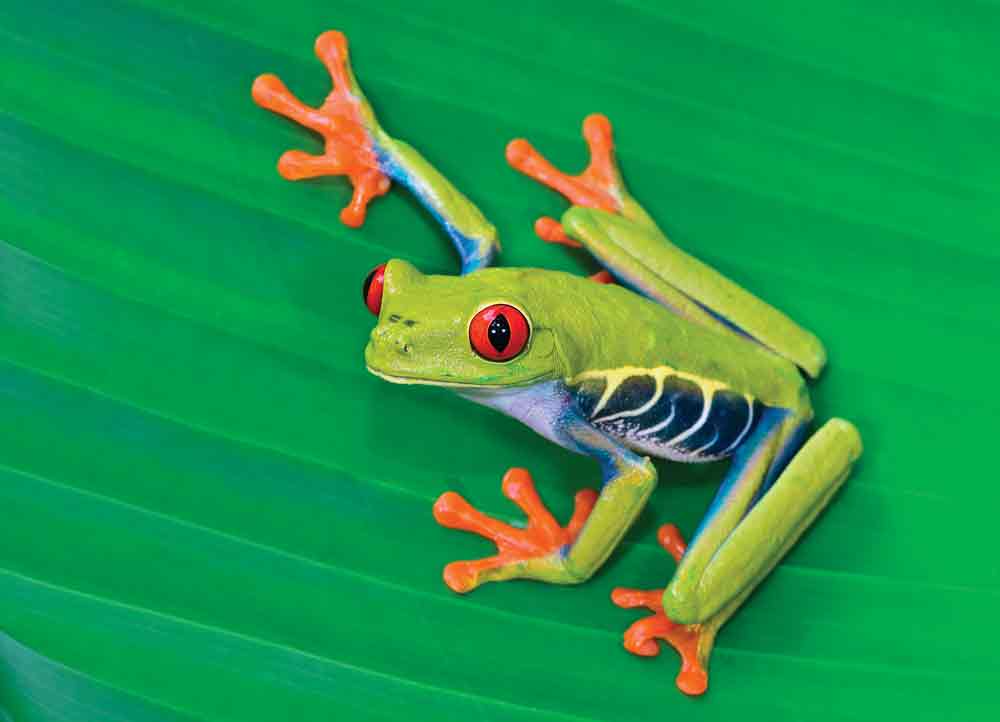The red-eyed tree frog, scientifically known as Agalychnis callidryas, is one of the most recognizable and vibrant amphibians in the world. Here’s a detailed overview of this fascinating species:
Key Features of Red-Eyed Tree Frog
Physical Characteristics
- Coloration: Bright green body with striking blue and yellow stripes on the sides. The most distinctive feature is its large red eyes, which can be quite startling.
- Size: Adults typically measure about 2 to 4 inches (5 to 10 cm) in length.
- Skin: Smooth, moist skin that is adapted for its tropical habitat. The coloration helps with camouflage among the leaves.
Habitat
- Geographic Range: Native to Central America, particularly found in countries like Costa Rica, Nicaragua, and Panama.
- Environment: Prefers humid, tropical rainforests, often near water bodies like ponds and streams, where they can find suitable breeding sites.
Behavior
- Nocturnal: Active primarily at night. During the day, they often hide in the foliage to avoid predators.
- Diet: Carnivorous, feeding on insects such as crickets, moths, and other small invertebrates. Their long, sticky tongues are specialized for catching prey.
Reproduction
- Breeding Season: Typically occurs during the rainy season. Males call to attract females with a series of croaks and whistles.
- Eggs: Females lay eggs on the underside of leaves above water. When the eggs hatch, the tadpoles drop into the water below.
Conservation
- Threats: Habitat destruction, climate change, and pollution pose significant threats. They are also vulnerable to diseases like chytridiomycosis.
- Status: Classified as “Least Concern” by the IUCN, but some populations are declining.
Fun Facts
- The red eyes can startle potential predators, providing a crucial escape opportunity.
- They are known for their vibrant colors, which can also help camouflage them among the colorful foliage of their rainforest homes.
- They play an essential role in their ecosystem, helping to control insect populations.
The red-eyed tree frog is not only a symbol of the rich biodiversity of Central American rainforests but also serves as an important indicator of environmental health. Their striking appearance and unique behaviors make them a favorite among nature enthusiasts and researchers alike.
